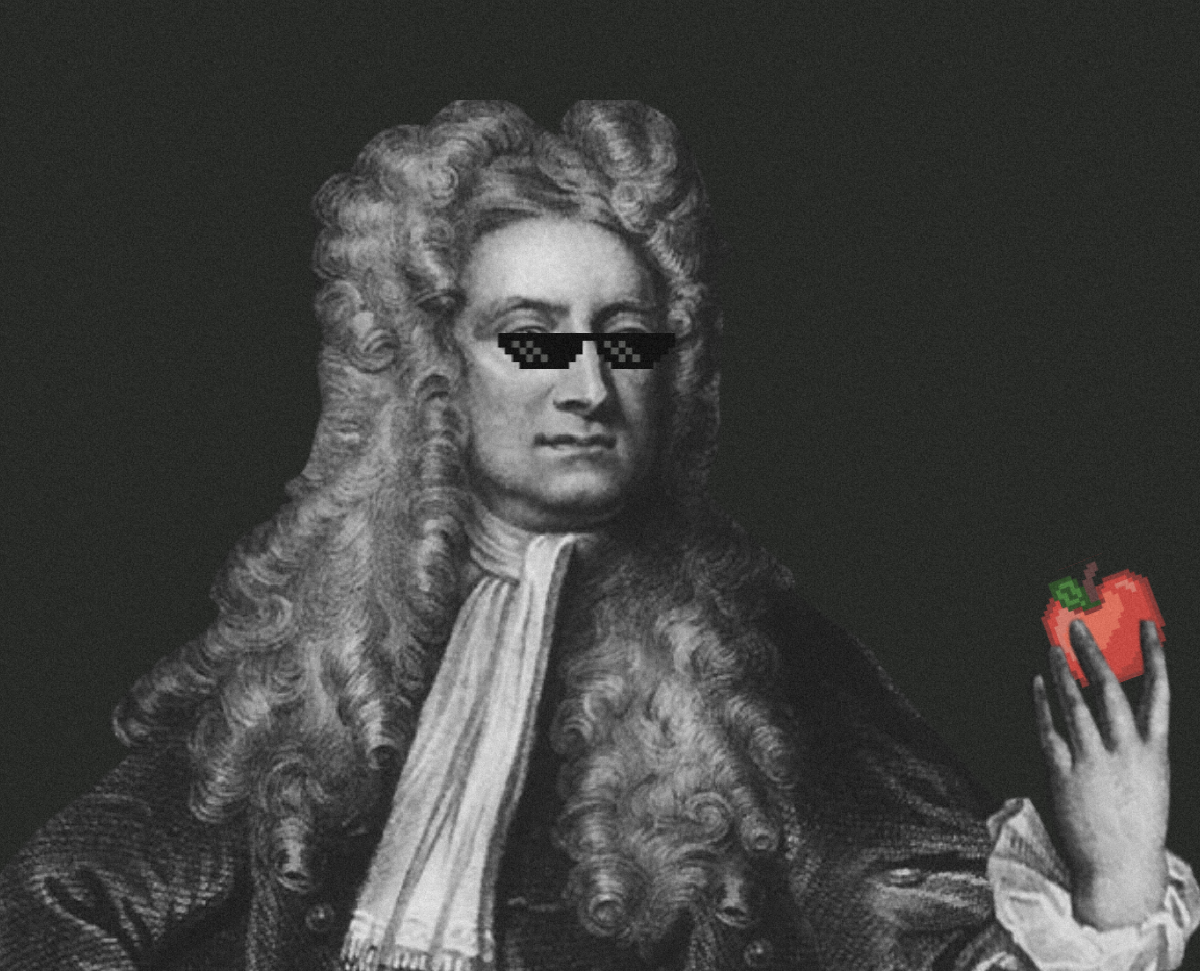Sir Isaac Newton#
Sir Isaac Newton, born on December 25, 1642, in Woolsthorpe, England, is often regarded as one of the most influential scientists in history. His contributions to mathematics, physics, and astronomy laid the groundwork for modern science. However, his interests extended beyond these fields; he was also deeply engaged in alchemy and theology.
Contributions to Science#
Mathematics and Calculus
Newton’s work in mathematics was groundbreaking. He developed fluxions, now known as calculus, which provided a mathematical framework for understanding change and motion. This invention was crucial for his later work in physics and astronomy.
Laws of Motion and Universal Gravitation
His most notable scientific achievements include the formulation of the Three Laws of Motion and the Law of Universal Gravitation, detailed in his seminal work Philosophiæ Naturalis Principia Mathematica (1687). In this work, he famously stated, “There is a power of gravity pertaining to all bodies, proportional to the several quantities of matter which they contain”. These laws not only explained terrestrial motion but also celestial phenomena, effectively unifying the heavens and Earth under the same physical principles.
Optics
Newton’s contributions to optics were equally significant. He demonstrated that white light is composed of a spectrum of colors by using prisms to split light. This discovery laid the foundation for modern optics and spectroscopy. His book Opticks (1704) explored these ideas further and introduced concepts such as the particle theory of light.
Development of Calculus by Sir Isaac Newton#
Sir Isaac Newton developed calculus, which he referred to as “fluxions,” primarily during his early twenties, between 1664 and 1666. This period was pivotal in his life, as he described it as “the prime of my age for invention and minded mathematics and [natural] philosophy more than at any time since”. Newton’s work on calculus was driven by his need to understand and describe physical phenomena, particularly motion and change, which were central to his studies in physics.
Reason Behind Development of Calculus#
Newton developed calculus to address the limitations of existing mathematical tools in describing the natural world. His work in physics, especially his study of planetary motion and the behavior of physical systems, required a new mathematical framework that could handle rates of change and accumulation. Calculus provided the necessary tools for analyzing these phenomena, allowing Newton to model and predict the motion of objects under various forces, including gravity.
How Newton Developed Calculus#
Newton’s approach to calculus involved the concept of infinitesimals, or “fluxions,” which are infinitely small quantities used to compute rates of change and accumulation. He developed methods to calculate tangents and curvatures of curves, laying the groundwork for what would become the fundamental theorem of calculus. His work was initially documented in manuscripts such as De analysi per aequationes numero terminorum infinitas (1669) and later compiled in Methodus Fluxionum et Serierum Infinitarum (1671), although this latter work was not published until 1736.
Importance of Calculus for Other Sciences#
Calculus was integral to the development of other sciences in several ways:
Physics and Astronomy: Newton used calculus to formulate his laws of motion and the law of universal gravitation, which unified terrestrial and celestial mechanics. This work, presented in Philosophiæ Naturalis Principia Mathematica (1687), revolutionized our understanding of the physical universe.
Engineering: Calculus provides essential tools for designing and optimizing systems, from bridges to electronic circuits. Its ability to model and predict the behavior of complex systems has been crucial in the development of modern engineering disciplines.
Economics: Calculus is used in economics to model economic systems, understand supply and demand, and optimize economic outcomes. It helps economists analyze how variables change over time and how they interact.
Biology and Medicine: In fields like epidemiology and pharmacokinetics, calculus is used to model the spread of diseases and the concentration of drugs in the body over time.
Interest in Alchemy#
Despite his monumental achievements in science, Newton’s fascination with alchemy is less well-known. He devoted a substantial amount of time to alchemical studies, believing that understanding the material world could lead to insights about spiritual truths. Newton engaged with alchemical texts, seeking to uncover the secrets of transmutation and the philosopher’s stone.
His alchemical pursuits were often intertwined with his scientific inquiries. For instance, he viewed alchemy as a precursor to chemistry and believed that it could provide a deeper understanding of nature. In his writings on alchemy, he stated, “I can calculate the motion of heavenly bodies, but not the madness of people”. This reflects his recognition of the limitations of scientific reasoning when it comes to human behavior.
Isaac Newton’s work in alchemy significantly influenced his scientific discoveries, intertwining his quest for understanding the natural world with his mystical pursuits. While Newton is best known for his contributions to physics and mathematics, his extensive engagement with alchemy shaped his scientific methodology and philosophical outlook.
Alchemical Influence on Scientific Thought#
Alchemy as a Precursor to Chemistry
In the 17th century, alchemy was not merely a quest for the philosopher’s stone or the transmutation of metals; it was closely related to early chemistry. Newton’s alchemical studies provided him with experimental techniques and a framework for understanding matter that would later inform his scientific work. Alchemists like Robert Boyle, whose writings Newton studied, emphasized the importance of experimentation, which Newton adopted in his scientific inquiries.
Newton believed that alchemical processes could reveal fundamental truths about nature. He referred to a “universal tincture,” a concept suggesting a common substance underlying all materials, which parallels later theories in chemistry regarding elemental composition. His alchemical pursuits were driven by a desire to uncover a unified understanding of the forces acting in both the macrocosm and microcosm, reflecting his broader scientific goals.
Experimental Methodology
Newton’s meticulous approach to alchemy involved extensive experimentation, where he documented over a million words on the subject. This commitment to empirical observation laid the groundwork for the scientific method as we know it today. His experiments often sought to replicate natural processes, such as the generation of metals within the Earth, which he described as a “cosmic vegetable”—a living entity producing metals through natural means.
Philosophical Context#
The Search for Unity in Nature
Newton was deeply influenced by the Hermetic tradition and the idea of prisca sapientia, or ancient wisdom, which posited that early civilizations possessed knowledge about nature that had been lost over time. He saw alchemy as a way to rediscover this knowledge through careful study and experimentation. In his writings, he expressed a desire to derive natural phenomena from mechanical principles, indicating that he viewed both science and alchemy as complementary paths toward understanding the universe.
In one of his reflections, Newton stated, “I wish that we could derive the rest of the phenomena of Nature by the same kind of reasoning from mechanical principle”—a testament to his aspiration for a cohesive explanation of natural laws through both scientific inquiry and alchemical exploration.
Crucial Role of Alchemy in His Scientific Methods#
Newton’s engagement with alchemy was not merely an eccentric hobby; it played a crucial role in shaping his scientific methodology and philosophical outlook. The experimental techniques and conceptual frameworks he developed through alchemical studies contributed significantly to his groundbreaking discoveries in physics and mathematics. By integrating these seemingly disparate fields, Newton exemplified the spirit of inquiry that characterized the Scientific Revolution, leaving a legacy that continues to influence both science and philosophy today.
Sir Isaac Newton’s Legacy#
Newton’s legacy is profound; he is often credited with ushering in the Scientific Revolution. His rigorous methods transformed how science was conducted, emphasizing observation and mathematical description. He also served as a member of Parliament and held prestigious positions such as Warden and Master of the Royal Mint.
Sir Isaac Newton was not just a scientist but a polymath whose interests spanned various fields including mathematics, physics, optics, theology, and alchemy. His contributions have had a lasting impact on both science and philosophy, making him a pivotal figure in intellectual history.


